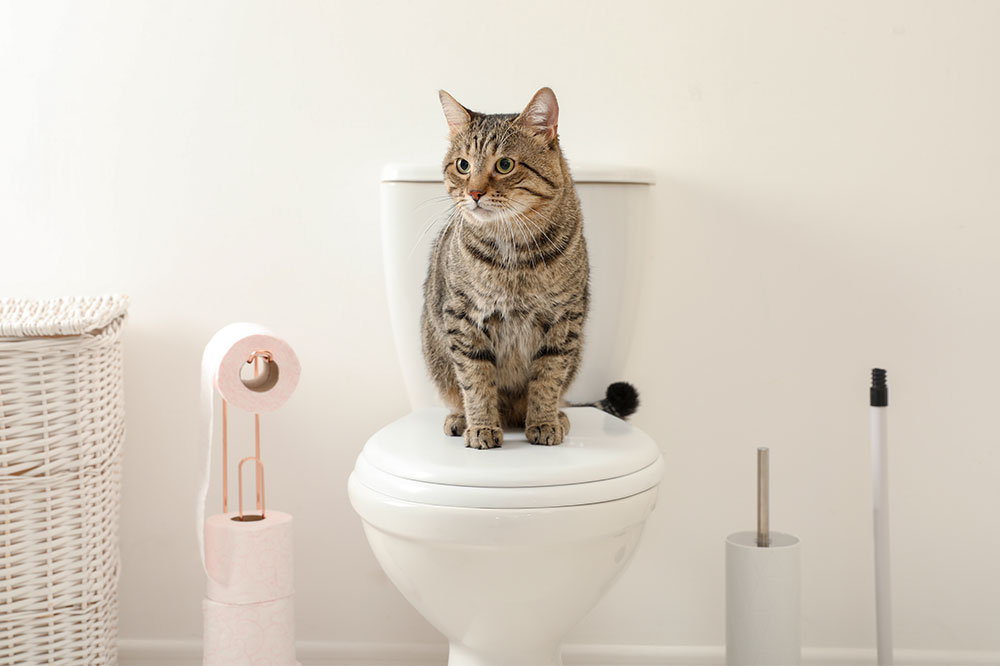5 helpful tips to toilet train your cat
Many cat parents don’t like cleaning the litter box every single day. And that’s usually the main reason they’d want to start with toilet training from day one itself. But properly inculcating the habit of using the bathroom in felines may not be easy. Although cats are intelligent creatures, they need time to learn new practices and modify old ones.

Choose the right time
You may have several excellent methods to toilet train your cat, but they might not work if the timing isn’t apt. Do you have guests at home, or you’re busy with work? Now isn’t the ideal time. The best time to teach your cat is when disturbance at home is the least, and having sufficient time to train them is vital.
Give them their bathroom
If possible, designate one bathroom for your furry family member in your home. Ask all your other family members and guests to keep the lid up and seat down at all times. Also, keep the bathroom door only slightly open when your cat is doing their business, as they, too, prefer privacy.
Keep the litter box in the bathroom
To help your cat transition from the litter box to the bathroom, move their litter box right next to the toilet. Your cat may take some time to get used to the new location. But until then, consider simplifying things for yourself by using Fresh Step® Outstretch™ cat litter, a concentrated clay clumping litter with micro granules that need to be replaced less frequently.
Move up the litter box
An excellent way to toilet train your cat is to gradually raise the litter box an inch at a time till it reaches the seat’s level. You can use a stack of newspapers to increase the height. Also, slowly move the litter box closer to the toilet until the box is right over the seat.
Reward them for using the bathroom
Don’t forget to reward your cat with treats and toys each time they use the toilet. This tip will help them associate rewards with using the bathroom and motivate them to do their business in the new spot. However, give rewards only initially. Make sure they don’t develop the habit of expecting a reward every time.











